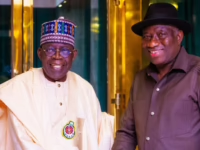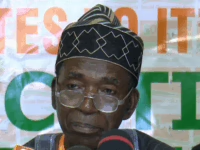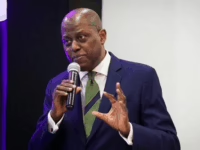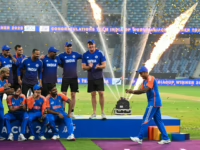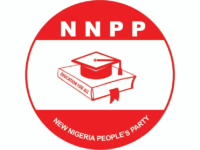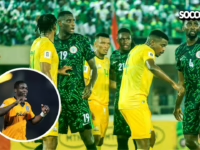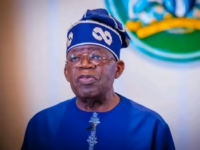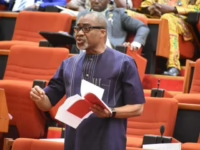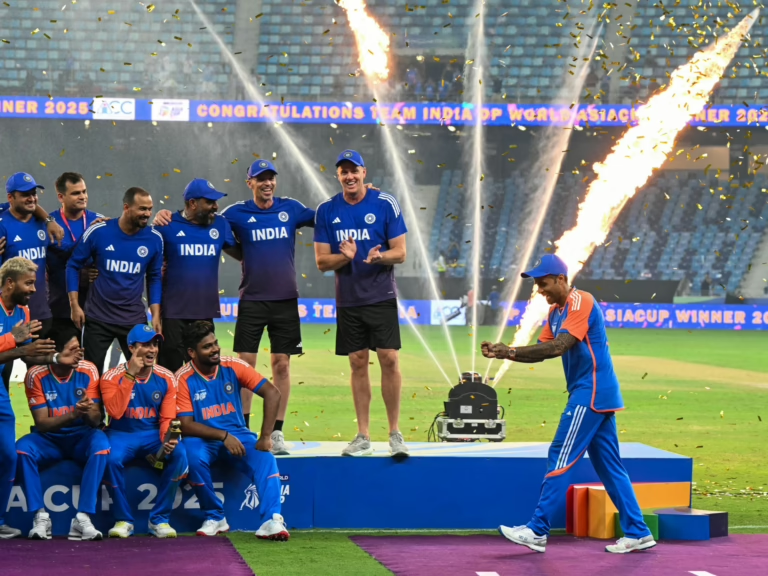Islamabad, Pakistan – On July 29, Indian Prime Minister Narendra Modi delivered a lengthy speech in parliament, more than two months after the intense four-day conflict with Pakistan in May. He praised India’s military operation, named “Operation Sindoor,” declaring it a triumph while emphasizing that the mission was ongoing.
“Operation Sindoor continues with unwavering determination,” Modi asserted during his 102-minute address.
Recommended Stories
list of 4 itemsend of list
Following India’s dramatic victory over Pakistan in the Asia Cup cricket final on September 28, Modi once again invoked the language of conflict while congratulating the team. Posting on X, he wrote, “Operation Sindoor on the sports field. The result remains unchanged – India triumphs! Congratulations to our cricketers.”
#OperationSindoor on the games field.
Outcome is the same – India wins!
Congrats to our cricketers.
– Narendra Modi (@narendramodi) September 28, 2025
Experts interpret Modi’s remarks as a clear signal: the Asia Cup, intended as a celebration of cricket across Asia, had morphed into a symbolic battleground between India and Pakistan, with the sport itself weaponized in their ongoing rivalry.
The prime minister’s statements capped a tournament overshadowed by hostility both on and off the pitch. The controversy peaked after the final when India refused to accept the Asia Cup trophy from Mohsin Naqvi, who holds multiple roles as the Asian Cricket Council (ACC) chairman, Pakistan Cricket Board (PCB) chairman, and Pakistan’s federal interior minister-a key political figure.
“We have chosen not to receive the Asia Cup trophy from the ACC chairman, who is also a leading political figure in Pakistan,” explained Devajit Saikia, chairman of the Board of Control for Cricket in India (BCCI), to the Indian news agency ANI following the final.
Instead of presenting the trophy and medals on the podium, the ACC under Naqvi’s leadership removed them, forcing India to celebrate with a makeshift “shadow trophy.”
Naqvi responded sharply to Modi’s war analogy on social media, stating, “If war defines your pride, history already records your humiliating defeats at Pakistan’s hands. No cricket match can alter that reality. Bringing war into sport only reveals desperation and tarnishes the spirit of the game.”
If war was your measure of pride, history already records your humiliating defeats at Pakistan’s hands. No cricket match can rewrite that truth. Dragging war into sport only exposes desperation and disgraces the very spirit of the game https://t.co/lqiUATm3wX
– Mohsin Naqvi (@MohsinnaqviC42) September 29, 2025
Even before the tournament began, tensions were high. Calls from Indian politicians, broadcasters, and former players urged the BCCI to boycott Pakistan’s participation. Indian captain Suryakumar Yadav faced criticism at home after shaking hands with Naqvi and Pakistan’s captain Salman Ali Agha during a pre-tournament press conference.
During India’s opening match on September 15, the team deliberately avoided handshakes with Pakistani players-a gesture repeated throughout the tournament, including the final.
Georgetown University’s Indian politics professor Irfan Nooruddin described the aborted trophy ceremony as the “peak of rising jingoism” in India.
He noted that the Indian team would be remembered for refusing to shake hands with their rivals and rejecting an award from an official performing his formal duties.
However, Nooruddin also criticized Naqvi’s actions.
“No party emerges with credit from this debacle. Naqvi’s choice to remove the trophy and medals was poor in judgment and taste, as were his social media remarks. Sadly, politics and cricket are deeply intertwined in South Asia, and cricket governance must demand that its leaders relinquish political roles,” he told Al Jazeera.
From Sportsmanship to Strife
India and Pakistan have not engaged in a bilateral cricket series since the 2008 Mumbai attacks, where militants linked to Pakistan killed 166 people, except for a brief three-match series in India in late 2012.
Since then, encounters have been limited to multi-nation tournaments. Their last final meeting was the 2017 Champions Trophy in London, where Pakistan famously defeated India at The Oval.
Relations between these nuclear-armed neighbors have steadily worsened, plunging further after the April Pahalgam attack in Indian-administered Kashmir, which claimed 26 civilian lives.
India accused Pakistan of orchestrating the attack and responded by withdrawing from the Indus Waters Treaty, a six-decade-old agreement managing the Indus river system.
Pakistan denied involvement, but tensions escalated into a fierce four-day aerial conflict in early May, involving missile and drone strikes on military bases-the most severe clash in nearly 30 years.
Even before this, sporting ties had frayed: India boycotted the Champions Trophy hosted by Pakistan in February, with India’s matches and the final relocated to Dubai at the BCCI’s insistence.
Indian political monthly The Caravan’s executive editor, Hartosh Singh Bal, argued that sport has limited power to ease diplomatic tensions when nationalism and hostility dominate.
“I don’t know what transpired on Pakistan’s side, but if the Indian board intended cricket to be a platform for diplomatic antagonism, they should have withdrawn from the match,” Bal told Al Jazeera regarding the Asia Cup final.
“Having chosen to participate, the players should have refrained from the unsportsmanlike conduct of avoiding handshakes and refusing the trophy,” he added.
Cricket’s Diplomatic Role Undermined
Using cricket as a tool of conflict represents a stark reversal from its traditional role in South Asia-as a diplomatic bridge even during tense periods.
In early 1987, amid military standoffs along their disputed border, Pakistan’s military ruler General Ziaul Haq visited India under Prime Minister Rajiv Gandhi to watch a cricket match.
Despite on-field rivalries and verbal sparring, cricket provided a rare channel for managing hostility in subsequent years. India and Pakistan co-hosted the 1996 World Cup, and India toured Pakistan for one-day matches in 1997.
In 1999, Pakistan toured India for a full Test series just months after both nations conducted nuclear tests, sparking nationalist fervor and global fears of nuclear conflict.
That tour produced one of cricket’s iconic moments: after Pakistan’s victory at Chennai’s MA Chidambaram Stadium, the team took a lap of honor to a standing ovation.
Pakistan’s team manager then was Shehryar Khan, a former diplomat and relative of India’s ex-captain Mansoor Ali Khan Pataudi.
His son, Ali Khan, an associate professor at Lahore University of Management Sciences (LUMS), explained that governments have historically used cricket discreetly to ease tensions, a practice now eroding.
“The Indian government’s hostility toward Pakistan is unprecedented. While they may have their reasons, this animosity has permeated much of the population,” Ali Khan told Al Jazeera.
He suggested that after the Pahalgam attack, calls to boycott the match meant that once New Delhi decided to play, the team’s overt hostility was a way to mitigate domestic criticism.
“I don’t believe the Pakistan team initiated hostility beyond the spirit of the game,” Khan, author of Cricket in Pakistan: Nation, Identity, and Politics, added.
Political Tensions Overshadow the Game
The May conflict involved aerial dogfights and missile strikes, with Pakistan claiming to have downed six Indian jets, while India asserted it had damaged Pakistani airbases and air defenses.

The ceasefire on May 10, which Pakistan credits to US mediation (a claim India disputes), did not end the propaganda war.
Both countries framed the conflict to bolster their narratives: Pakistan highlighted its aerial victories and praised the US president for “mediating peace,” even nominating him for the Nobel Peace Prize. India claimed its military superiority prevented escalation without external help.
In his July speech, Modi claimed a Pakistani officer pleaded with Indian forces to stop, saying, “Don’t hit us anymore; we can’t endure it.”
Commentators like Bal argue Modi exploited the crisis for political advantage. “Modi will leverage any event for political gain,” the editor said.
Former Pakistani High Commissioner to India Abdul Basit concurred.
“The war rhetoric serves domestic politics. With elections in Bihar next month and state polls next year, it’s a strategic move,” he noted.
Pakistani analyst Cyril Almeida suggested Modi was unsettled by international reactions to the May clashes, where Pakistan managed to present its narrative more effectively.
“By targeting sportsmen, Modi seems eager to shift the narrative in any way possible,” Almeida told Al Jazeera.
From Friendship to Fracture
Despite governmental tensions, players from both sides have traditionally maintained cordial relations.
Before Pakistani players were excluded from the Indian Premier League after the 2008 attacks, several had participated in the inaugural season and earned admiration.
Even with limited encounters in multi-team events, players have often displayed mutual respect, with Indian stars like Virat Kohli and Rohit Sharma enjoying popularity in Pakistan.
However, with the retirement of these veterans and the rise of a new generation, analysts observe that personal connections that once softened political animosity are fading.
Ali Khan noted that earlier players had a more sportsmanlike approach, fostered by frequent interaction, whereas the current generation has fewer chances to build rapport.
“The hostile environment in India discourages anyone from opposing the government’s directive to maintain a tough stance on Pakistan,” he said.
“Had senior players like Kohli still been active, they might have struggled to resist this pressure, even if they wished to.”
Prioritizing Livelihoods Over Hostility?
While the men’s teams are unlikely to face off soon, the women’s teams are scheduled to compete in Sri Lanka on October 5 during the Women’s World Cup, hosted by India.
However, political tensions restrict the broader cricket calendar. After India’s boycott of Champions Trophy matches in Pakistan-leading to matches being held in neutral venues-the Pakistan Cricket Board protested. An agreement was reached that Pakistan would avoid traveling to India for tournaments until 2027, affecting events like the Women’s World Cup and the 2026 men’s T20 World Cup, with Pakistan playing at neutral sites instead.
Ali Khan contrasted the current climate with the 1999 tour, highlighting the governments’ reluctance to re-engage.
“Back then, public hostility was far less intense. Today, relations are at their lowest, and people-to-people contact has been severed. Change will require courageous leadership willing to look beyond narrow interests,” he said.
Nooruddin offered a more hopeful view. While condemning the overt hostilities at the tournament, he emphasized that most citizens in both countries prioritize their livelihoods over nationalist posturing.
“Nationalistic fervor mainly serves politicians who seek to divide rather than unite. Though the current situation is bleak, leadership changes eventually open doors for cooperation,” the Washington, DC-based scholar said.
Yet Islamabad-based Almeida warned that Modi’s third term, extending to 2029, makes swift change unlikely.
“Some in Pakistan hoped Modi’s third term would bring peace efforts. Instead, the 2025 Modi appears unchanged-focused on dominance rather than dialogue, even in cricket,” Almeida concluded.





